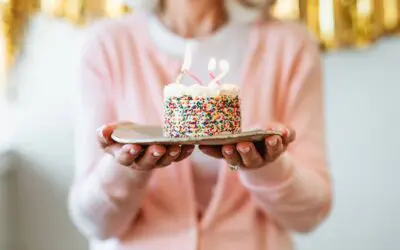For seniors especially, maintaining those pearly whites and healthy gums provides a plethora of additional overall health benefits, and can contribute to longevity, but that means more than just brushing each day.
While age isn’t necessarily the most significant indicator of oral health for seniors, it is a contributing factor to many issues that seniors face in maintaining a beautiful smile and healthy gums. Even with everyday brushing, oral health issues can develop. Below is a list of additional tips for seniors that want to prevent oral health issues that they become more susceptible to as they age.
Daily and Thorough Flossing
We all know that flossing is great for maintaining a beautiful smile, but it is particularly important for seniors because it reduces the build-up of the plaque that can cause gum disease, bringing with it a litany of additional health issues like heart disease and poor circulation. Gum disease becomes a larger problem as we age. Plaque buildup, food left in teeth, poor-fitting oral appliances, poor diet, anemia and diabetes can contribute to gum disease, and flossing is the most effective way to prevent plaque build up. One study even found that regular flossing could add up to 6.4 additional years to one’s life because it helps remove the bacteria that can cause several life-threatening conditions and illnesses.
Brush Twice Daily with Fluoride Toothpaste & Clean Oral Devices
Although most people brush thoroughly twice per day, for seniors, doing so is absolutely imperative to maintaining a healthy mouth. Other than the obvious aesthetic benefits associated with brushing your teeth (maintaining that infectious smile!), it’s the most effective way to avoid a number of oral health issues. Brushing thoroughly means more than getting to the back of your mouth; seniors should consider purchasing an electric tooth brush that can reach between and behind teeth and to maneuver and remove trapped food particles.
If you have dentures or wear an oral device regularly, it’s important to clean the appliance at least once per day by soaking it and brushing it with a non-abrasive cleanser such as Polident or Equate. The easiest and most effective way to clean your dentures is to do so immediately following any meal, decreasing the chance for food particles to get lodged in your gums. While your dentures or device is removed, use a soft-bristled toothbrush or gauze to clean your tongue, the roof of your mouth and cheeks.
Control Your Sweet Tooth!
As we age it is not uncommon for our saliva glands to become less productive. Saliva works as an agent for washing away leftover food particles and neutralizing acid, and without it, sugars found in sweets and acids can attack our teeth at the root, causing root decay, and if untreated, tooth loss. Because root decay is the result of an aging mouth and a receding gum line, it typically affects people that are over 50 years old.
Stay Hydrated
As mentioned above, dry mouth is a catalyst for a variety of oral health issues, and the best way to avoid this condition is to activate the saliva glands and wash away food particles and other things that can cause plaque and darkened teeth.
Darkened teeth are the product of changes in dentin, which is the bone-like tissue beneath tooth enamel. Consuming acidic and stain-causing foods and beverages, like salad dressings and sodas can wear away at tooth enamel, allowing the darker yellow dentin to become more visible.
Don’t Be Afraid of the Big Bad Dentist
We’ve all heard the horror stories about visiting the dentist. Dental checkups are infamous for being uncomfortable, lengthy and painstaking experiences, but this is not typically the case. It is imperative for adults over 50 years of age to visit the dentist at least twice per year for regular cleaning and checkups. Because the mouth is a point of access and breeding ground for germs, it’s important for all healthcare professionals to have a full understanding of a patient’s oral health. Regularly visiting a dentist ensures that oral health records are current, and problems are diagnosed and treated before they develop into something more significant.
Seniors experiencing the issues listed below should report them to a dentist or health care professional as soon as possible, as they could be signs of more significant problems:
- Recent mouth changes, including loose or sensitive teeth or gums
- Difficulty tasting, chewing, or swallowing
- Pain, discomfort, sores, or bleeding in your mouth
- Lumps, bumps, or swelling in your mouth
- Problems or discomfort with appliances or dentures
Enjoy Your Meals Again
Health benefits and risks aside, as we age we commonly experience a decline with regards to our sense of taste. Just as our vision sometimes begins to dwindle in our senior years, so does our ability to acutely experience some flavors. When we are born we have 10,000 taste buds, but as we age that number significantly decreases. Seniors experiencing the loss of ability to taste can try adding herbs and spices like oregano, cilantro or citrus juice to add a bit of zest to meals without affecting blood pressure.
Even though age plays an important role in oral health, the key to the healthy gums and healthy teeth—for all ages—is regular maintenance. Smart senior oral health starts with brushing, flossing, and rinsing. Problem awareness and bi-annual visits to the dentist keep everything in check and make it possible to halt any possible issues before they become larger problems.
Source:
WebMD: https://www.webmd.com/oral-health/guide/dental-care-seniors
Everday Health: https://www.everydayhealth.com/senior-health/when-aging-steals-your-sense-of-taste.aspx
Mayo Clinic: https://www.mayoclinic.org/denture-care/expert-answers/faq-20058375
21st Century Dental & Sleep Center: https://www.21stcenturydental.com/floss.html



